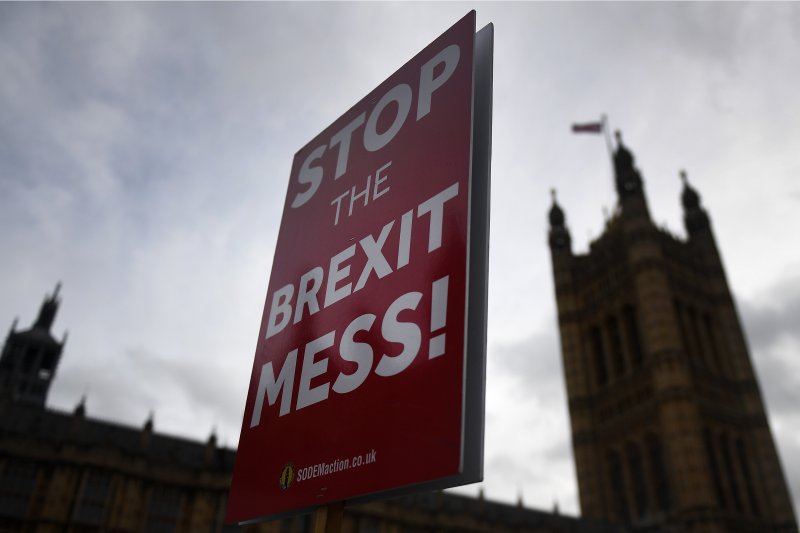Sept. 19 (UPI) -- The British government submitted documents Thursday detailing a possible alternative to the Irish "backstop" provision that's been at the heart of disagreement among lawmakers and leaders trying to reach a deal to leave the European Union.
Officials said the "confidential" documents detail the government's designs for ensuring the free flow of trade between Northern Ireland and Ireland once Britain withdraws from the alliance. They added, however, that the outline is still only at the informal stage.















